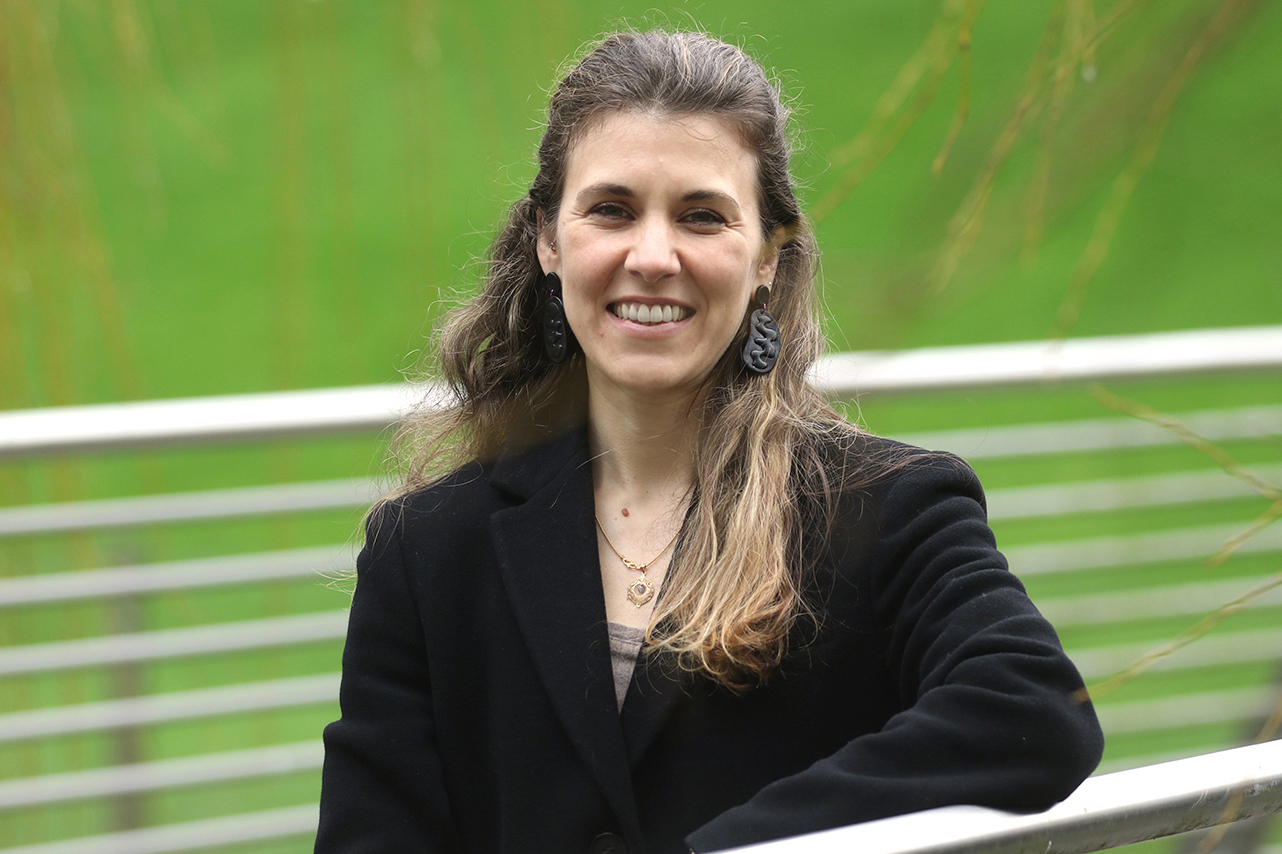In This Section
- Home
- Staff Profiles & Phone Book
- About the Department
- Welcome from Head of Department of Anatomy and Neuroscience
- A History of the Department
- A history of the Department; The early years to the 1980s
- A history of the Department; The move from the Windle Building to BSI and WGB
- UCC Professors of Anatomy and Heads of Department
- The development of the UCC HUB
- Current students, recent research graduates and awards
- Useful Links
- Study Anatomy
- Study Neuroscience
- Research
- Neural circuitry underlying Neuropsychiatric and Neurological Disorders 2026
- Neurogastroenterology 2026
- Developmental Neuroscience and Regeneration 2026
- Neurodegeneration 2026
- Neuroinflammation 2026
- Neuroprotection and Therapeutics 2026
- Neuroproteomics and Molecular Psychiatry 2026
- Anatomy Education Research 2026
- Research Facilities 2026
- Postgraduate Research Programmes 2026
- UCC Anatomical Donations
- Biosciences Imaging Centre
- BSc Medical and Health Sciences
- News & Events
- News Archive 2024
- News Archive 2023
- News Archive 2022
- News Archive 2021
- News Archive 2020
- News Archive 2019
- News Archive 2018
- News archive 2017
- News Archive 2016
- News Archive2015
- News Archive 2014
- News Archive 2013
- News Archive 2012
- News Archive 2011
- BRAIN AWARENESS WEEK 2023
- Department Events and Conferences
- Seminar series 2019_2020
- photo galleries
- Narrowing the void Conference 2023
- Photos of BSc Medical and Health Sciences Mentoring launch 2022
- International Women's Day 2023
- 2023 BRIGHT FUTURES - Celebrating our researchers
- 2023 UCC Futures - Future Ageing & Brain Sciences
- Recent Graduations July 2023
- Anatomy and Neuroscience Top 100 Anatomy Physiology 2023
- BRAIN AWARENESS WEEK 2023 FUN AND GAMES EVENT
- Medical and Health Sciences First year class 2023
- 2023 Brain Awareness week Scientific discussion photo gallery
- World Anatomy Day 2023
- BSc MHS MENTORING PROGRAMME 2023
- BSc Medical and Health Sciences Graduation 2023
- BSc Neuroscience Graduation Photo Gallery 2023
- Dr Kathy Quane Nov 2023
- THANKSGIVING PHOTOS 2012
- Photo Gallery: Society of Translational Medicine Careers Fair 2023
- Photo Gallery:2023 TRAIN AWARDS
- Photo Gallery:2024 Creative Week St Joseph's NS
- Photo Gallery: Department of Anatomy and Neuroscience Thanksgiving Service 2024
- Photo Gallery: Professor Aideen Sullivan farewell party
- Photo Gallery: Irish Pain Society Annual Scientific Meeting Cork 2023
- Photo Gallery: 2024 Medical and Health Sciences Graduation
- Photo Gallery: Medical and Health Sciences Meet and Greet 2024
- Photo Gallery: 2024 BSC NEUROSCIENCE Graduation
- Photo Gallery: 2025 INTERNATIONAL WOMEN'S DAY
- Photo Gallery: 2025 BSc Neuroscience class and staff
- Photo Gallery: 2025 BRAIN CONNECTIONS
- BSc Neuroscience Graduation Photo Gallery 2025
- World Anatomy Day 2025
- UCC Learning and Teaching Showcase 2025
- MSc Human Anatomy Graduation Photo Gallery 2025
- Narrowing the Void Conference 2023
- Department of Anatomy and Neuroscience Contact Us
Dr María Rodriguez Aburto, Department of Anatomy and Neuroscience researcher awarded prestigious ERC Starting Grant

Congratulations to Dr María Rodriguez Aburto who has recently been awarded a European Research Council (ERC) Starting Grant of €1.75m to support her research project RADIOGUT: Radial Glia as Neurodevelopmental Mediators of Gut Microbiota Signals.
From a competitive field of over 4,000 applicants Europe-wide, Dr Rodriguez Aburto was one of eight researchers based in Ireland to have secured a European Research Council (ERC) Starting Grant, this being the most competitive call in the past 15 years. The Starting Grants, administered by Europe’s leading research funding body, are awarded to emerging research leaders across Europe who are at the stage of growing their own independent research teams, so that pioneering research can be conducted.
In her project RADIOGUT Dr Rodriguez Aburto will investigate how the gut microbiome communicates with the developing brain. Understanding this communication could have ground-breaking implications for neurodevelopmental disorders such as autism, as well as precision medicine.
Speaking about her work María explains “Currently there is limited understanding of how our gut microbiome communicates with the brain. We have more microbes than human cells in and on our bodies, most of them inhabiting our gut. I believe that understanding how gut microbes communicate with the developing brain will provide a new lens to view neurodevelopment.” María is confident that understanding how gut microbes communicate with the developing brain “will provide a new lens to view neurodevelopment”.
María received a PhD from the Neurobiology of Hearing Laboratory at the Biomedical Research Institute, in her home city of Madrid in 2011. She followed this with a post-doctoral position in the Neuro and Vascular Guidance Group at The Buchmann Institute for Molecular Life Sciences in Frankfurt, Germany and in 2020 María was awarded a Marie Curie Individual Fellowship to join Professor John Cryan’s group in the APC Microbiome Ireland, UCC. María’s RADIOGUT project builds on her research at APC Microbiome Ireland and the Department of Anatomy and Neuroscience UCC.
Professor John F. Cryan, UCC Vice President for Research & Innovation congratulating María on her grant success noted “María is one of the most impressive scientists I’ve had the pleasure of working with and she has consistently impressed me with her passion for her innovative science. This project combines her strong background in brain development with the microbiome capabilities here in UCC and will be very impactful for the field”.
The Irish Research Council has joint responsibility with Science Foundation Ireland for promoting and supporting engagement by Irish researchers with the European Research Council. Welcoming the outcome of the call for Ireland, Dr Gráinne Walshe, assistant director of the Irish Research Council said: “European Research Council grants are among the most prestigious of any funding body worldwide.”
News Links:
https://apc.ucc.ie/two-apc-researchers-awarded-prestigious-erc-starting-grant/
https://www.irishexaminer.com/news/arid-40782027.html
https://www.echolive.ie/corknews/arid-40781964.html
https://www.siliconrepublic.com/innovation/european-research-council-grants-irish-horizon-europe
For more on this story contact:
News item and photographs B. Riedewald
Department of Anatomy and Neuroscience
Anatamaíocht agus Néareolaíocht
Contact us
Room 2.33, 2nd Floor, Western Gateway Building, University College, Cork, Ireland
